6 November 2020
Voices of LoCS4Africa 2020 – our congress in quotes

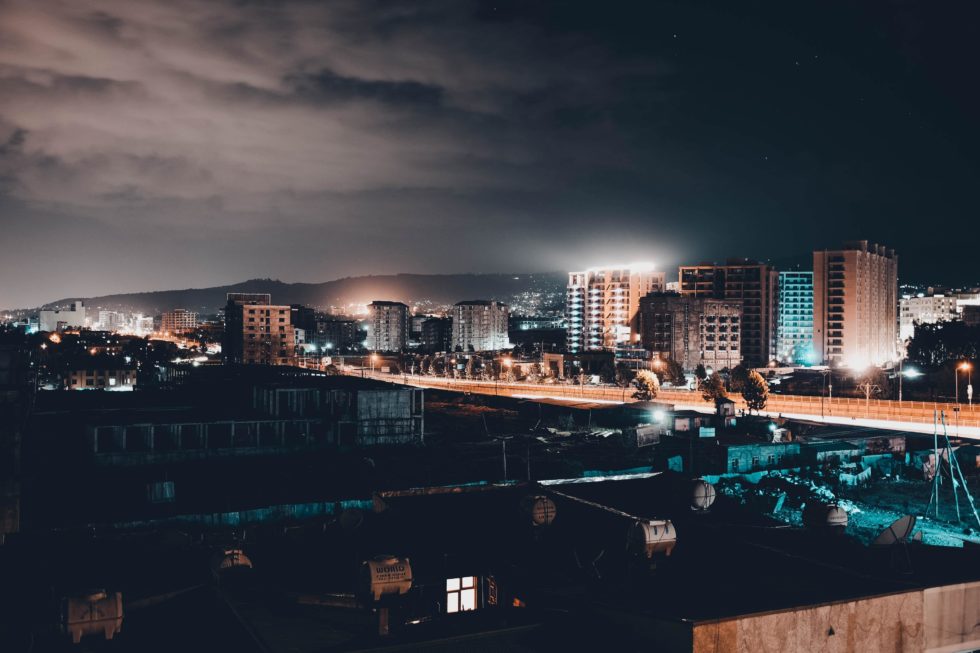

The LoCS4Africa virtual congress is the first of its kind on the continent and this year’s only virtual climate change congress for African city leaders and innovators. It will bring together government officials, innovators, entrepreneurs and financiers to find solutions for unlocking climate finance in Africa.
An interactive virtual platform will play host to inspiring high-level sessions, exclusive networking rooms, hands-on training hubs and a social lounge for impromptu conversations. Tours, poetry and performances will showcase our African culture. This free-to-attend solution catalyst will contribute significantly to raising climate action momentum on the African continent while dealing with the COVID-19 pandemic.
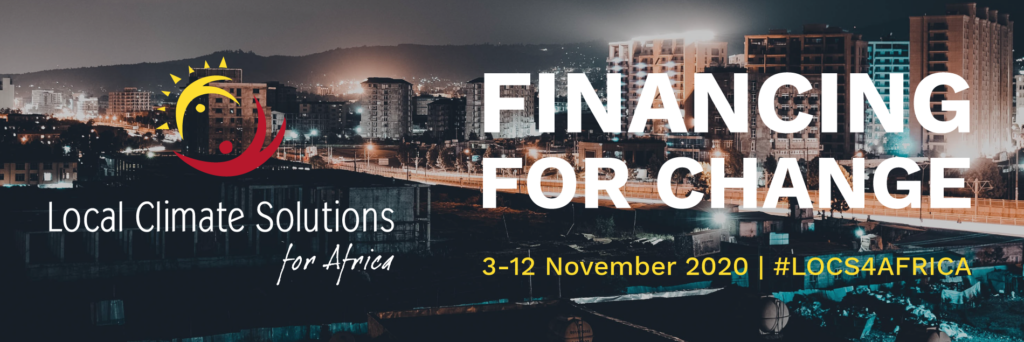
Some of the highlights so far
Below are some of the highlights of the congress so far, captured as stand-out quotes from our speakers. You can view the recordings of all these sessions in two places on the platform.
- In the Auditorium at the bottom of the agenda
- In the Resources section
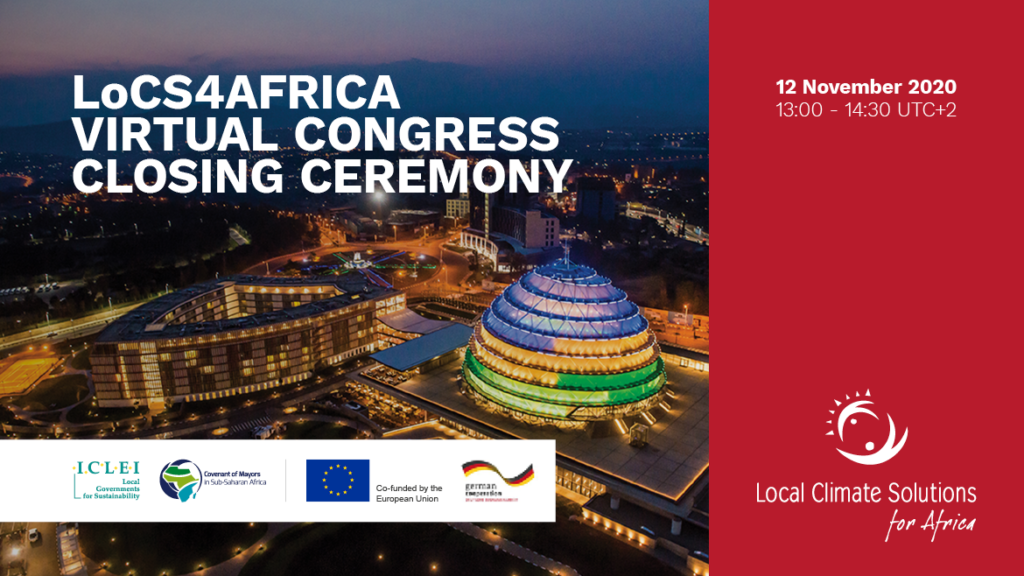
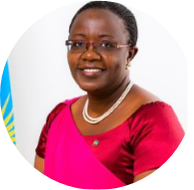

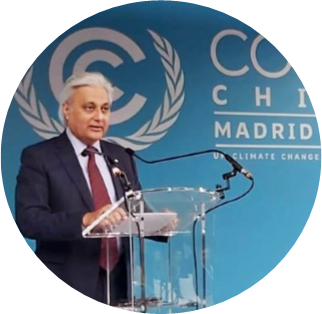
Dr. Mujawamariya Jeanne d’Arc, Minister of Environment, Republic of Rwanda
We, as a country, recognise the urgency of responding to climate change urgently, within this decade of action. Time is running out… This is also why, this congress – LoCS4Africa 2020 – with its focus on finance for change could not be more important at this juncture in history.
« Les plans de relance verte post-COVID du Rwanda nous permettront de mieux reconstruire et d’assurer un avenir #résilient et durable, avec le bien-être et l’inclusion en son sein… Nous reconnaissons l’urgence de répondre au changement climatique. »
Mr Stefano Signore, Head of Unit for Sustainable Energy and Climate Change, Directorate-General for International Cooperation and Development in the European Commission
We, as a country, recognise the urgency of responding to climate change urgently, within this decade of action. Time is running out… This is also why, this congress – LoCS4Africa 2020 – with its focus on finance for change could not be more important at this juncture in history.
« Les plans de relance verte post-COVID du Rwanda nous permettront de mieux reconstruire et d’assurer un avenir #résilient et durable, avec le bien-être et l’inclusion en son sein… Nous reconnaissons l’urgence de répondre au changement climatique. »
Dr. Mujawamariya Jeanne d’Arc, Minister of Environment, Republic of Rwanda
The EU External Investment Plan, which is already operational, is expected to generate up to 44 billion Euros of additional investment in Africa, for low carbon and resilient infrastructure.
« Le plan d’investissement extérieur de l’UE, déjà opérationnel, devrait générer jusqu’à 44 milliards d’euros d’investissements supplémentaires en Afrique, pour des infrastructures résilientes et à faible émission de carbone »
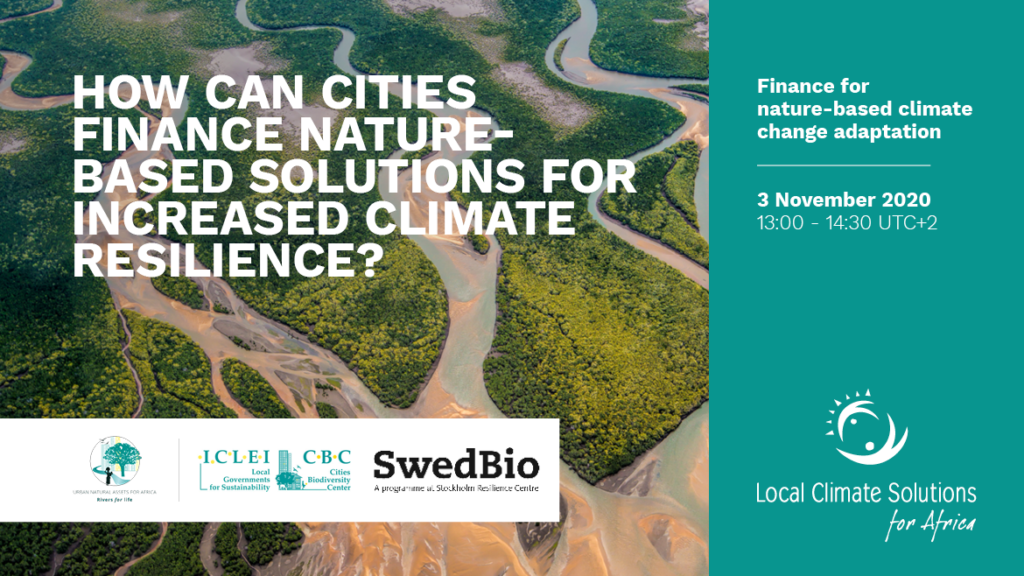
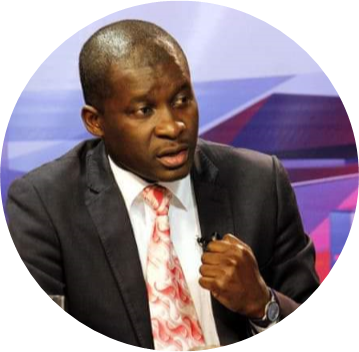

Dr Manuel de Araújo Mayor of Quelimane – Mozambique
A nature based solutions project that provides an alternate source of income for local communities can help reduce the pressure on ecosystems, which builds resilience at the local level, such as the mangroves in Quelimane.
Saliha Dobardzic Sr. Climate Change Specialist at Adaptation Fund
Over the last decade there has been growing understanding that nature based solutions can be the most sustainable, cost effective and impactful intervention
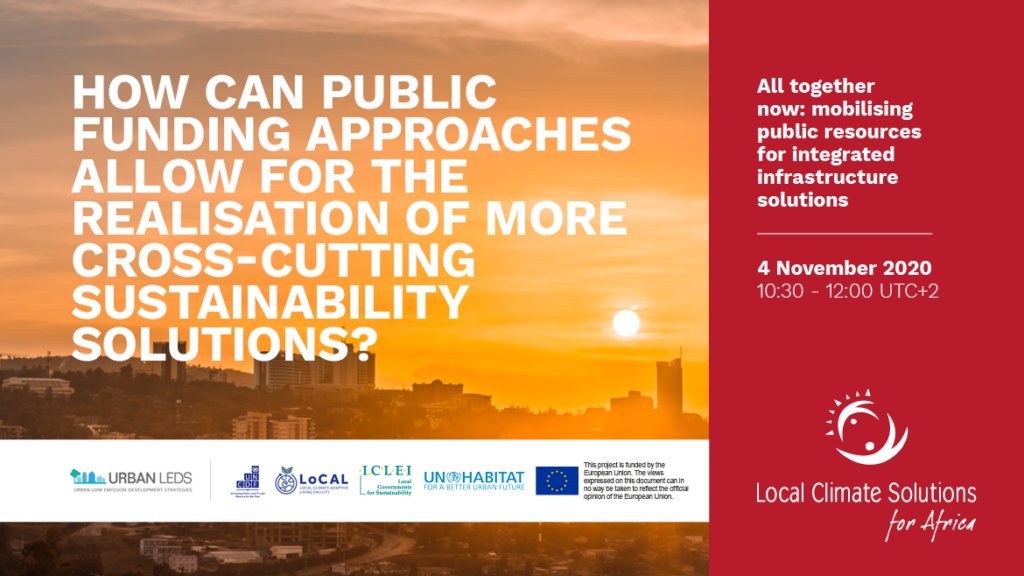
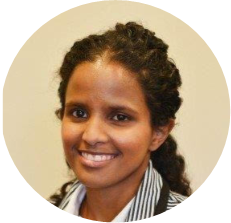

Zanthea Limberg, Mayoral Committee Member: Water & Waste, City of Cape Town
Commercial, private and NGO stakeholders contribute to a fund that allows money to be redirected to the management of water catchment areas (especially for invasive alien species management) to ensure we maximise rainfall flow to catchments.
Ben Mokhesang, EHead: Transacting Municipalities & Waterboards, Development Bank of Southern Africa
Municipalities can mobilise finance through revenue generation, allocation from national governments and borrowing from financial organisations. The Development Bank of Southern Africa is happy to report that municipalities comprise about 1/3 of its loan books.
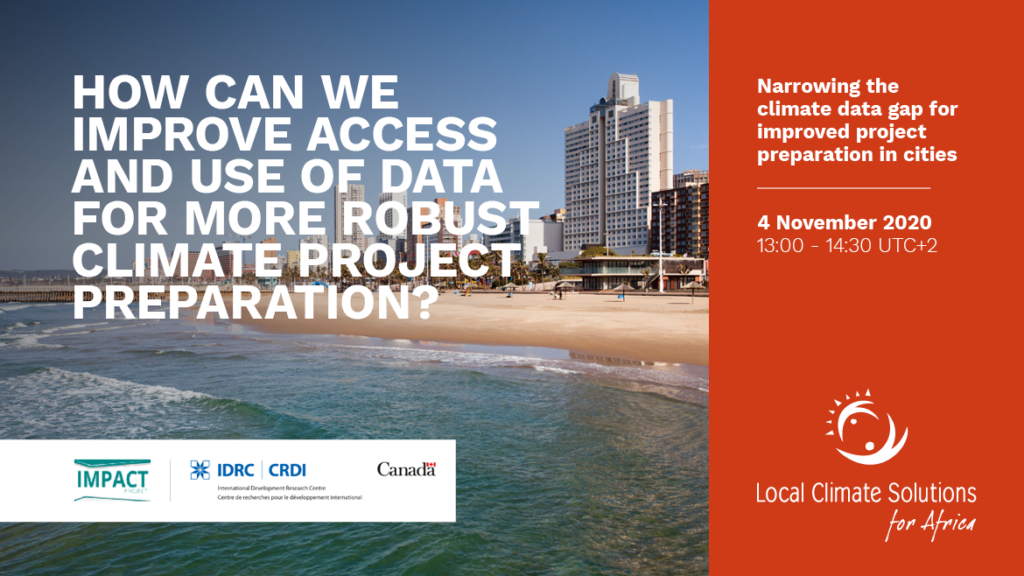

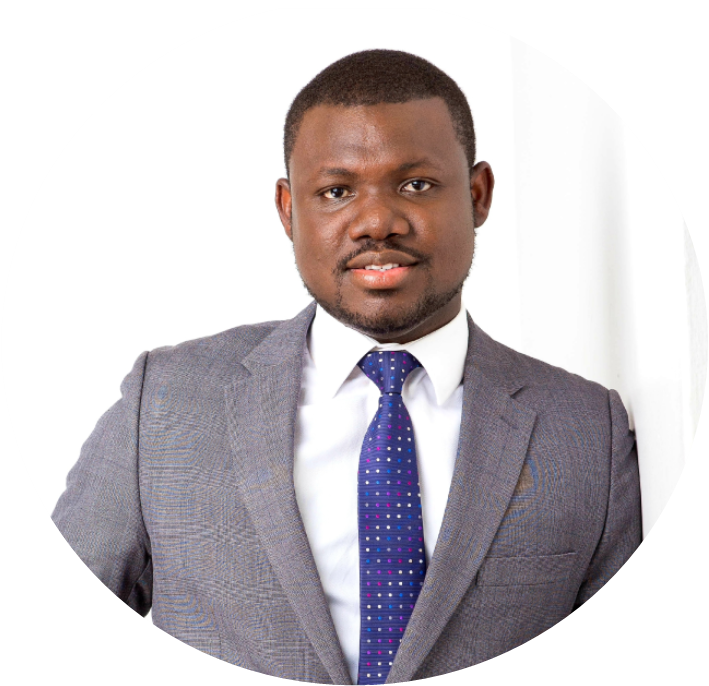
Dr Kathryn Toure, IDRC Regional Director – Eastern and Southern Africa
Building collaborations and relationships are foundational for effective climate action.
Dr Olufunso Somorin, Regional Principal Officer, African Development Bank
We need to tell our climate stories, and those that include local knowledge. We need a system that categorises different FORMS of data. And at every point in time, adaptation must be at the centre of everything we do.
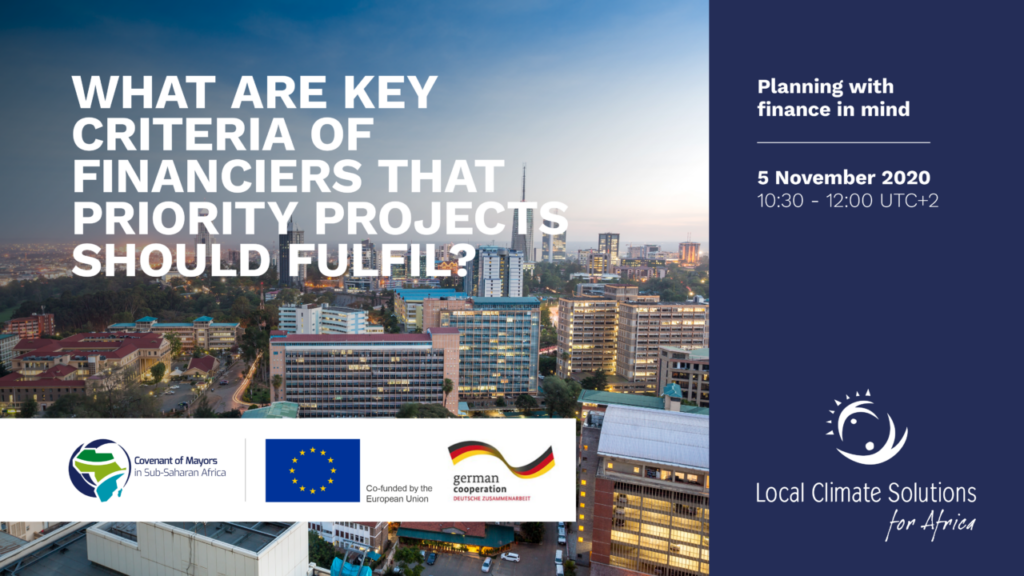
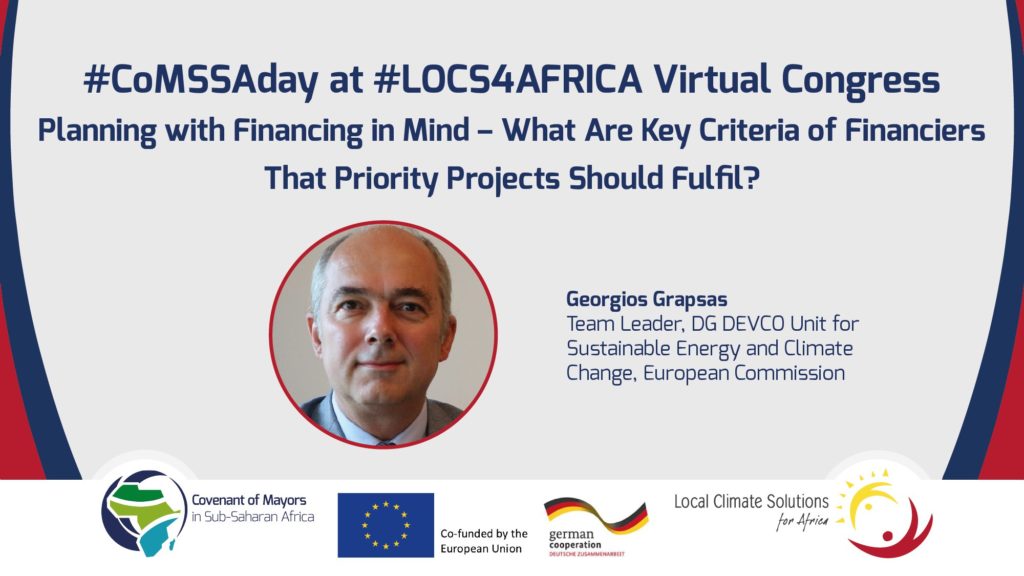
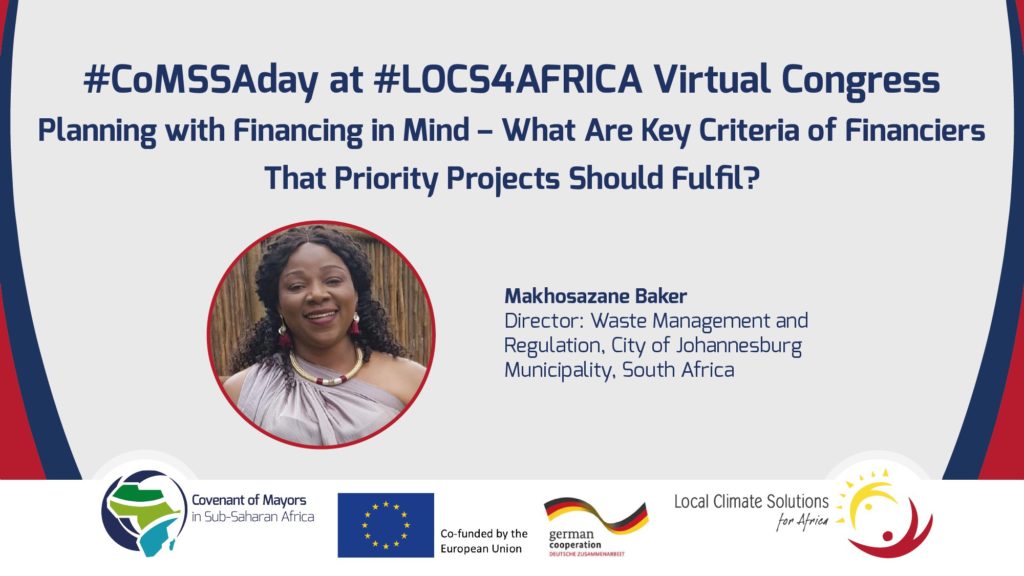
Georgios Grapsas Team Leader, DG DEVCO Unit for Sustainable Energy and Climate Change, European Commission
Cities are important. They have great ideas and enthusiasm, but need help to achieve their climate change and energy priorities. We are looking to finance projects that are sustainable, applicable and scalable.
« Les villes sont importantes; elles ont de grandes idées et la motivation, mais elles ont besoin d’aide pour réaliser leurs priorités en matière de changement climatique et d’énergie. Nous cherchons à financer des projets durables, pertinents et évolutifs. »
Makhosazane Baker Director: Waste Management and Regulation, City of Johannesburg Municipality, South Africa
To attract financiers, a city needs to have its house in order: 1) Good corporate government and risk management; 2) Project alignment to city’s strategic objectives; 3) Project Monitoring, Evaluation and Reporting; 4) Financial management; and 5) Political buy-in.
« Pour attirer les financiers, une ville doit avoir “ses affaires en ordre”: 1) Bonne gouvernance d’entreprise et gestion des risques; 2) Alignement des projets aux objectifs stratégiques de la ville; 3) Evaluation du projet; 4) Bonne gestion financière; et 5) Adhésion politique »
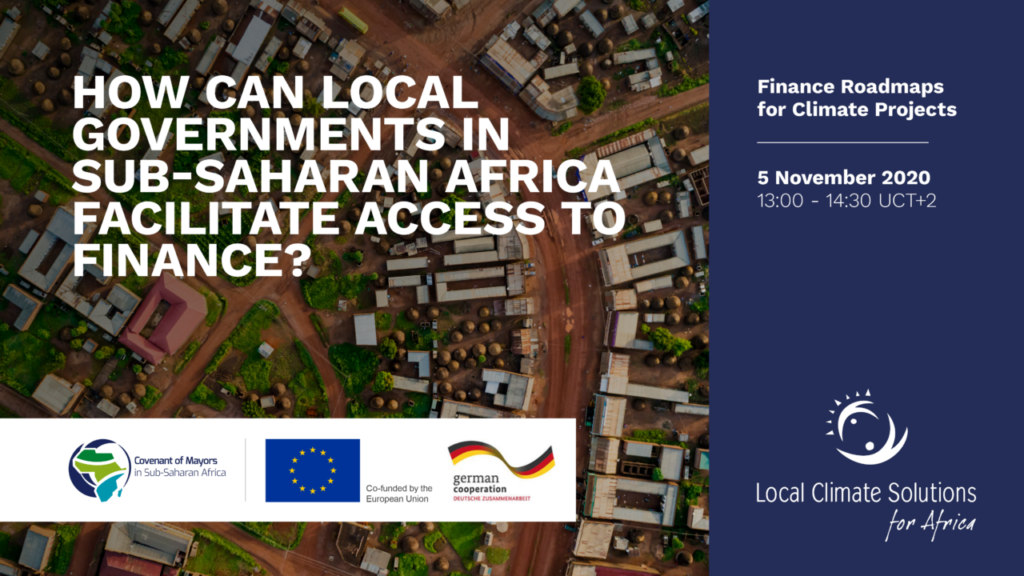
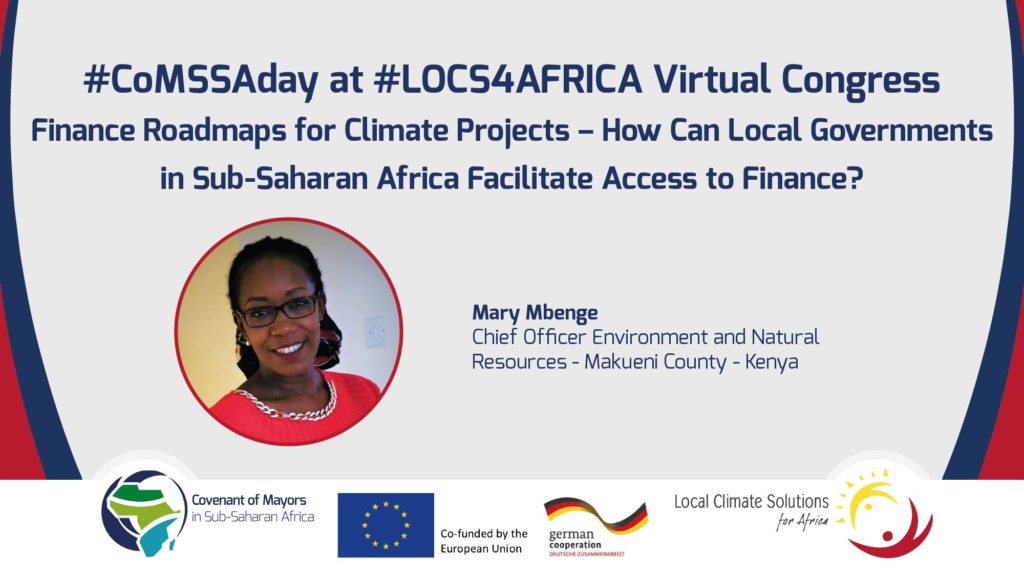

Mary Mbenge Chief Officer Environment and Natural Resources, Makueni County, Kenya
Advice to subnational governments: Start somewhere, even if it’s with small fund mechanisms before going to donors. In Makueni County Government, 1% of the budget is used for a climate change fund. Over time we’ve secured funding from the Green Climate Fund and others.
« Conseils aux gouvernements infranationaux : Commencez quelque part, même si c’est avec de petits mécanismes de financement, avant d’aller voir les bailleurs de fonds. Au sein du gouvernement du comté de Makueni, 1 % du budget est alloué à un fonds pour le changement climatique. Progressivement, nous avons obtenu des financements du Fonds vert pour le climat et d’autres. »
Carla Rooseboom Senior Finance Expert, Global Clearinghouse for Development Finance
CoM SSA has developed Finance Roadmaps for Climate Projects: This provides 10 Action Specific Roadmaps and proactive steps that local governments can take at each stage of the project lifecycle.
« CoM SSA a développé la Feuilles de Route pour le Financement de Projets Climat: qui fournit 10 feuilles de route spécifiques à une action et des étapes proactives que les gouvernement local peuvent entreprendre à chaque étape du cycle de vie du projet. »
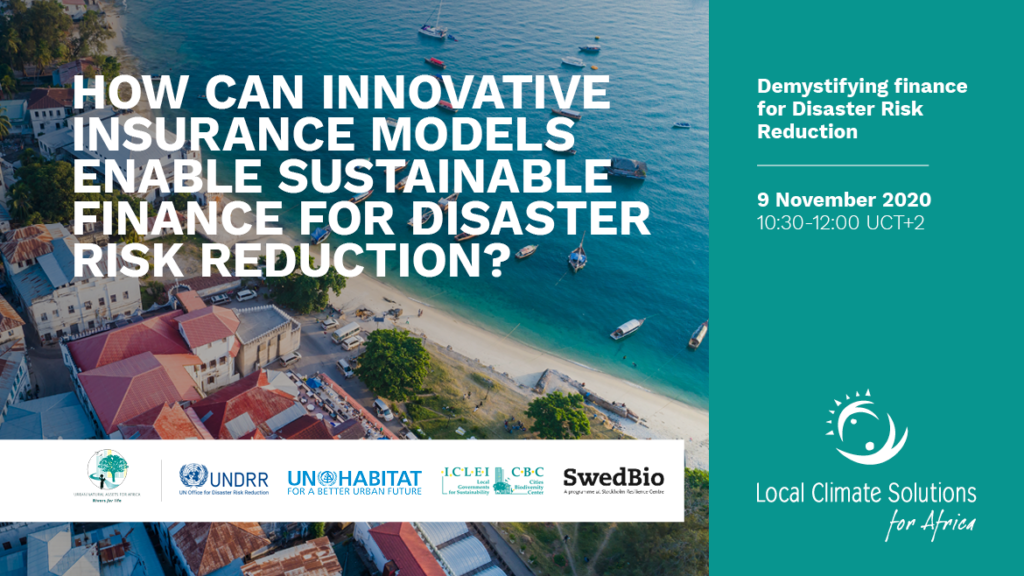

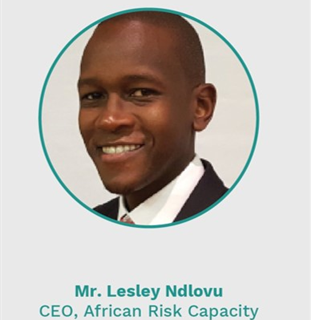
When approaching Disaster Risk Reduction we face certain challenges. Two of these are risk knowledge and risk governance.
« Lorsque nous étudions la réduction des risques de catastrophes, nous sommes confrontés à certains défis, dont la connaissance des risques et la gouvernance des risques »
Insurance itself is not the ultimate solution. It works well as one of the instruments to governments and communities. Insurance works best for disasters that are very severe but less frequent.
« Les assurances ne constituent pas la solution ultime. Il s’agit d’un instrument parmi d’autres qui fonctionnent bien au sein des gouvernements et des communautés. Les assurances fonctionnent mieux dans les cas de catastrophes très graves mais moins fréquentes »
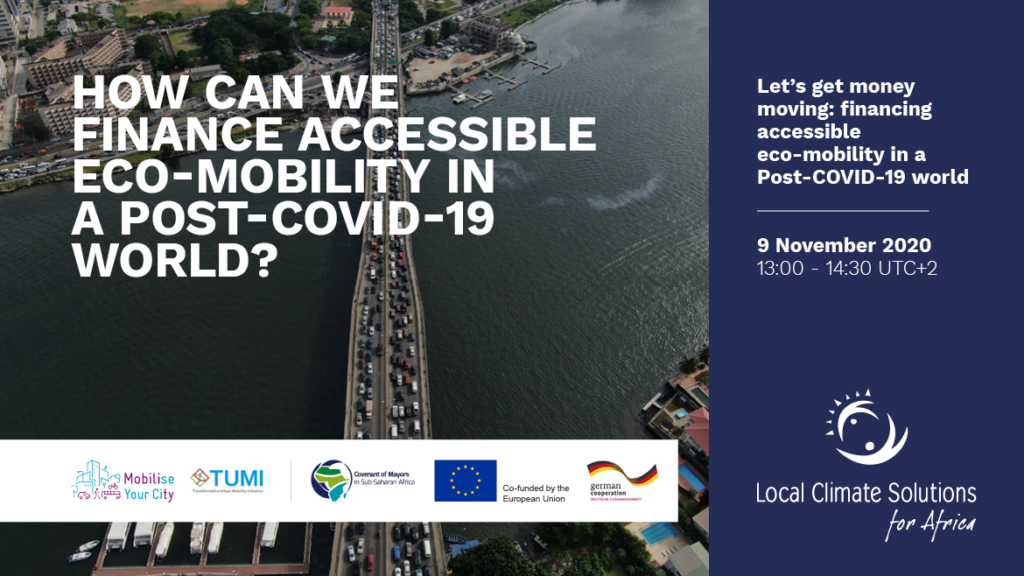
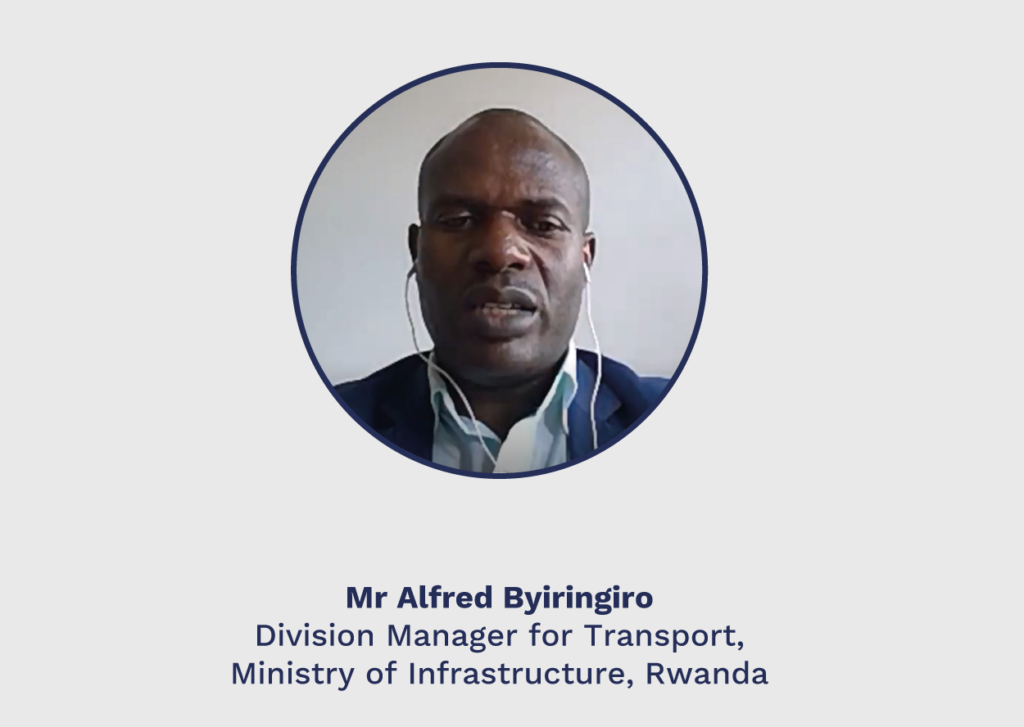
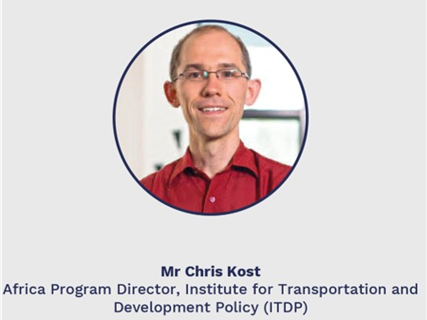
Rwanda is introducing electric mobility and non-traditional modes of transport. The City of Kigali has developed a Master Plan, focusing on mixed use and non-motorised transportation, which will create a resilient transport system.”
« Le Rwanda met en place un système de mobilité électrique et des modes de transport non traditionnels. La ville de Kigali a élaboré un plan directeur axé sur le transport mixte et non motorisé, qui permettra de créer un système de transport résilient. »
There is a need for more equitable mobility, guided by good design standards and political will, to stir mobility investments; the focus should be on pedestrians and modernised public transport.”
« Il faut une mobilité plus équitable, guidée par de bonnes normes de conception et une bonne volonté politique, pour stimuler les investissements dans la mobilité ; les piétons et la modernisation des transports publics devront être prioritaires. »

